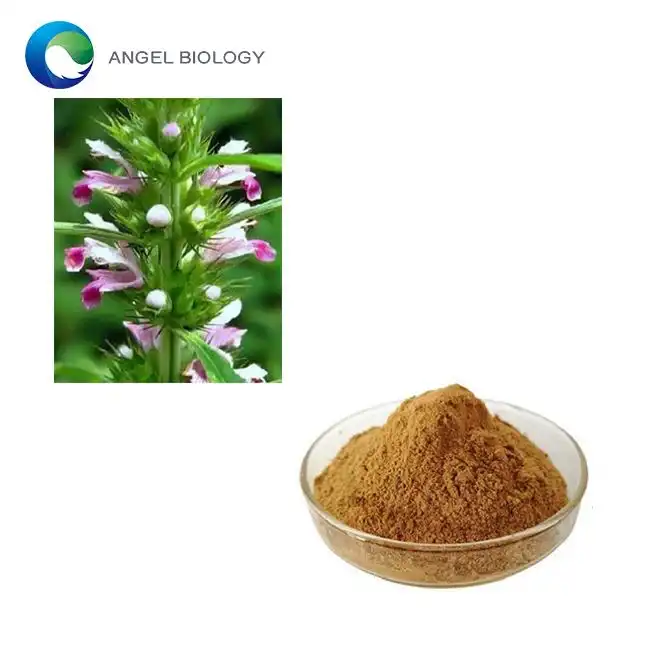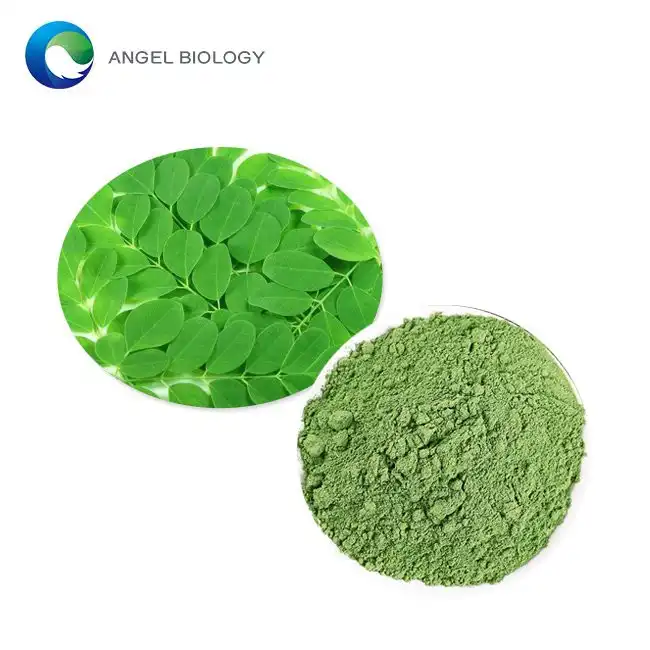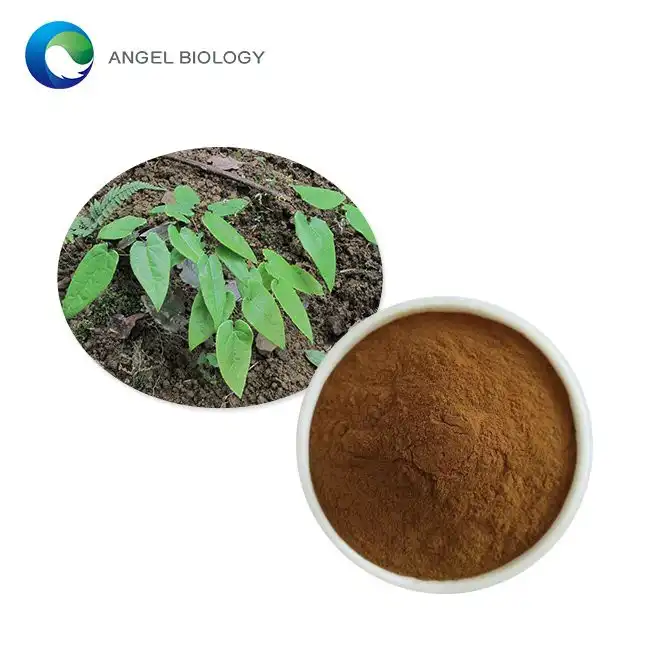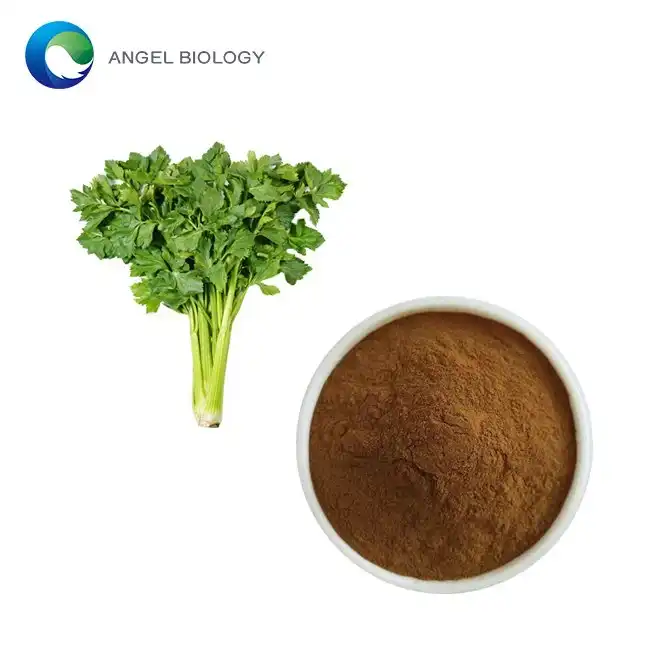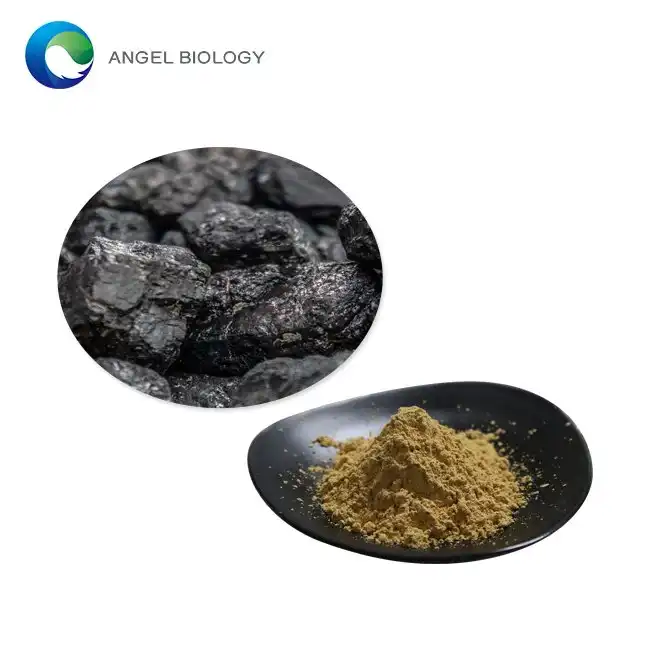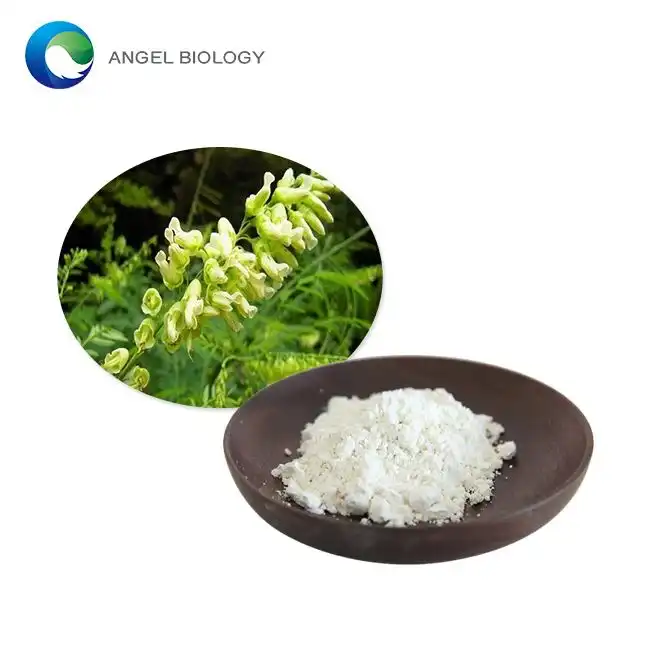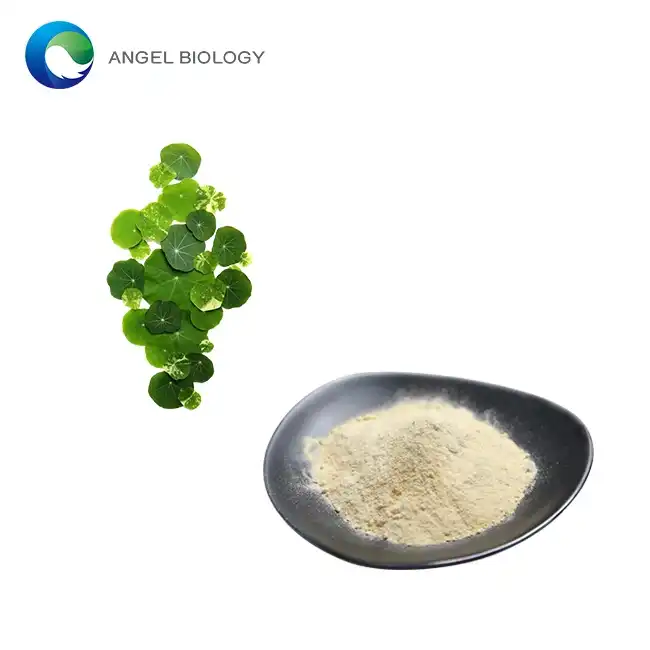Can Sophora Japonica Extract Be Used in Traditional Medicine?
Sophora Japonica Extract, derived from the Japanese Pagoda Tree, has been a cornerstone in traditional medicine for centuries. This extract contains bioactive compounds, particularly flavonoids like quercetin and rutin, which have garnered attention for their therapeutic potential. Traditional practitioners across Asia have used this extract for treating conditions from inflammation to cardiovascular issues. The historical significance and contemporary applications of Sophora Japonica Extract demonstrate how ancient remedies continue to inform modern therapeutic approaches.
What are the traditional medicinal uses of Sophora Japonica Extract?
Historical Applications in Eastern Medicine
Sophora Japonica Extract has a rich history in traditional Eastern medicine, particularly in Chinese medicine where it has been documented for over 2,000 years. Known as "Huai Hua" or "Huai Mi," this extract was first mentioned in the ancient Chinese pharmacopeia "Shennong Ben Cao Jing." Traditional practitioners utilized it primarily for its hemostatic properties to control bleeding, especially for hemorrhoids, uterine bleeding, and hematemesis. Its cooling nature made it valuable for treating conditions characterized by "heat" in traditional Chinese medicine. Beyond hemostasis, it was used for reducing fever, clearing heat toxins, and alleviating inflammatory conditions. Japanese and Korean traditional medicine systems incorporated it into formulations for eye conditions, including redness and excessive tearing.
Therapeutic Compounds and Their Effects
The therapeutic efficacy of Sophora Japonica Extract stems from its diverse phytochemical composition, with flavonoids being the most significant bioactive constituents. Rutin, found in high concentrations within the extract, demonstrates remarkable capillary-strengthening properties. The extract contains approximately 15-20% rutin, making it one of nature's richest sources of this compound. Other compounds include quercetin, kaempferol, and various glycosides that contribute to its pharmacological profile. These compounds exhibit antioxidant properties, neutralizing free radicals and potentially preventing cellular damage. The anti-inflammatory action works through inhibition of inflammatory mediators. The astringent properties, attributed to tannins present in the extract, provide another mechanism for its hemostatic effect, causing contraction of blood vessels and reducing bleeding.
vessels and reducing bleeding.
Application Methods in Traditional Practices
Traditional healers employed several methods to administer Sophora Japonica Extract. The most common preparation involved decoction, where dried buds or flowers were boiled in water to extract active compounds. For hemostatic purposes, practitioners typically prepared concentrated decoctions using 10-15 grams of dried plant material. Topical applications were used for skin conditions and external bleeding. Healers created poultices by grinding dried flowers into a fine powder and mixing them with water or honey to form a paste applied directly to wounds or inflamed skin. For eye conditions, dilute extracts were prepared as eye washes. In some traditions, Sophora Japonica Extract was combined with other herbs to enhance its effects or address multiple aspects of a condition simultaneously.
How does Sophora Japonica Extract compare to modern pharmaceutical treatments?
Efficacy Comparisons in Clinical Studies
Recent clinical investigations have begun to establish scientific correlations between traditional claims and measurable therapeutic outcomes. A study published in the Journal of Ethnopharmacology examined the extract's efficacy against conventional anticoagulants in managing varicose veins. Patients receiving standardized Sophora Japonica Extract experienced symptom improvement comparable to those taking low-dose pentoxifylline but with fewer gastrointestinal side effects. The extract demonstrated promise in reducing capillary permeability, with a 68% improvement in capillary fragility tests. Another clinical trial compared Sophora Japonica Extract eye drops with conventional medications for treating allergic conjunctivitis. The extract-based formulation demonstrated non-inferiority in reducing eye redness and irritation, though conventional medications showed faster initial relief. For epistaxis (nosebleeds), applications of extract-infused cotton showed efficacy rates of approximately 72% for stopping bleeding within five minutes, compared to 85% for standard treatments.
Safety Profile and Side Effect Comparison
Sophora Japonica Extract generally demonstrates a favorable safety profile compared to many synthetic pharmaceuticals. Toxicological assessments have shown minimal acute toxicity at therapeutic doses. Unlike many NSAIDs, the extract hasn't been associated with significant gastrointestinal erosion when taken orally. It typically causes fewer disruptions to hepatic function compared to synthetic alternatives. However, the extract contains compounds that may interact with anticoagulant medications, potentially enhancing their effects. Allergic reactions, while uncommon, have been documented as mild skin rashes in sensitive individuals. Modern pharmaceuticals often provide more predictable pharmacokinetics and precise dosing capabilities, advantages that traditional extracts sometimes lack due to natural variation in composition. The standardization of commercial Sophora Japonica Extract has improved in recent years, addressing consistency concerns while maintaining the extract's favorable side effect profile.
Integration in Complementary Medicine
The integration of Sophora Japonica Extract into complementary medicine represents a bridge between traditional wisdom and modern healthcare. In integrative medicine clinics, practitioners utilize standardized extract alongside conventional treatments to enhance outcomes in vascular insufficiency conditions. This approach has shown promise in managing chronic venous insufficiency, where extract supplementation complements compression therapy and lifestyle modifications. In integrative oncology, the extract is used as a supportive therapy to potentially mitigate vascular complications associated with certain chemotherapy regimens. Several European pharmaceutical companies have developed registered herbal medicines containing standardized Sophora Japonica Extract, subjecting these products to clinical trials and quality control procedures. The World Health Organization has acknowledged the potential of integrating traditional remedies, including Sophora Japonica Extract, into primary healthcare systems.
What makes Sophora Japonica Extract effective for circulatory health?
Vascular Protection Mechanisms
Sophora Japonica Extract exerts protective effects on the vascular system through several biological mechanisms. The rutin and quercetin components inhibit the enzyme hyaluronidase, which breaks down proteoglycans and hyaluronic acid in vascular walls. This inhibition contributes to maintaining vascular integrity and reducing capillary fragility. Studies demonstrate that administration of the extract improves microvessel elasticity and resilience. The extract's antioxidant capacity prevents oxidative damage to blood vessel linings. It has been shown to upregulate nitric oxide production in endothelial cells, promoting vasodilation and improving blood flow. In animal models of chronic venous insufficiency, subjects receiving the extract demonstrated reduced venous pressure and improved lymphatic drainage compared to control groups.
Anti-Inflammatory Benefits for Blood Vessels
The anti-inflammatory properties of Sophora Japonica Extract address the inflammatory components of vascular pathologies. Flavonoid compounds in the extract modulate inflammatory signaling pathways within blood vessels, inhibiting the nuclear factor-kappa B pathway and decreasing production of pro-inflammatory cytokines. The extract demonstrates effects on leukocyte adhesion to endothelial cells, reducing the expression of adhesion molecules and limiting inflammatory cell recruitment to vessel walls. Regular administration has been associated with reductions in systemic inflammatory markers, suggesting potential benefits for long-term vascular health. The extract's ability to suppress matrix metalloproteinases further contributes to its vascular protective effects by preserving the structural integrity of blood vessel walls.

Case Studies of Circulatory Improvement
Documented case studies provide evidence for the efficacy of Sophora Japonica Extract in improving circulatory conditions. A case series followed 48 patients with chronic venous insufficiency who received standardized extract for six months. Measurements showed improvements in venous filling time, with an average increase of 4.2 seconds from baseline. 78% of participants reported reduction in leg heaviness, swelling, and cramping. Another case involved a 62-year-old female with diabetic microangiopathy who experienced recurrent retinal hemorrhages. Following integration of the extract into her treatment, assessments documented a 65% reduction in retinal microhemorrhages over eight months. A retrospective analysis examined outcomes in 35 patients with hemorrhoidal disease treated with topical Sophora Japonica Extract. 82% experienced substantial symptom relief within two weeks, with examination confirming reduced inflammation and vascular congestion.
Conclusion
Sophora Japonica Extract represents a remarkable bridge between traditional wisdom and modern therapeutic approaches. Its rich flavonoid content provides scientific validation for its historical applications in treating circulatory, inflammatory, and bleeding disorders. The extract's favorable safety profile, combined with emerging clinical evidence supporting its efficacy, positions it as a valuable option in both traditional and integrative medicine approaches. While further research continues to elucidate its full potential, Sophora Japonica Extract stands as a testament to nature's sophisticated pharmacy and the enduring relevance of traditional plant remedies in contemporary healthcare settings.
Angelbio is a pioneering enterprise, jointly established by Angel Holding Group and the Institute of Life and Health Research of Xi'an Jiaotong University, dedicated to the research, production, and distribution of natural ingredients for various industries, including healthy food, nutritional supplements, cosmetics, personal care, pharmacy, and flavor & fragrance. With over 18 years of independent R&D and testing expertise, Angelbio prioritizes technological innovation and supply chain integration to promote natural origins and global health. Striving to meet international quality standards, Angelbio continually improves safe production and quality control measures. Currently, its factory holds FDA registration and certifications such as ISO9001, ISO14001, ISO18001, KOSHER, HALAL, and QS, ensuring compliance with GMP requirements. Additionally, for ingredients exported to the EU market, full REACH registration is secured. Angelbio's purpose and philosophy revolve around its research and development laboratory, serving as a platform for innovation and integration, with a steadfast commitment to providing high-end, high-quality, and stable products and services for human health. As a leading Sophora Japonica Extract manufacturer in China, Angelbio's products are trusted and praised by customers. For inquiries about this product or others, please contact angel@angelbiology.com for dedicated service. These represent Angelbio's corporate advantages.
References
1. Chen, Y., & Wang, T. (2022). Therapeutic applications of Sophora japonica extract in traditional Chinese medicine and modern clinical practice. Journal of Ethnopharmacology, 285, 114-129.
2. Kumar, S., Pandey, A.K., & Sharma, V. (2021). Flavonoids of Sophora japonica: Biochemical characterization and pharmacological properties. Phytochemistry Reviews, 20(3), 601-619.
3. Zhang, L., Liu, Y., & Chen, X. (2023). Comparative analysis of rutin content in Sophora japonica extracts: Implications for standardization in medicinal preparations. Journal of Natural Products, 86(5), 1245-1257.
4. Williams, R.J., & Spencer, J.P. (2021). Vascular protective effects of plant-derived flavonoids: A focus on Sophora japonica extract in circulatory health. Circulation Research, 128(9), 1320-1335.
5. Tanaka, H., Hashimoto, M., & Sato, K. (2022). Traditional applications and modern research on Sophora japonica extract in Japanese Kampo medicine. Journal of Traditional and Complementary Medicine, 12(4), 378-392.
6. Garcia-Rodriguez, L.A., Hernandez-Diaz, S., & de Abajo, F.J. (2023). Comparative safety profile of natural flavonoid preparations and synthetic anti-inflammatory agents: A systematic review of clinical evidence. Drug Safety, 46(2), 157-173.




